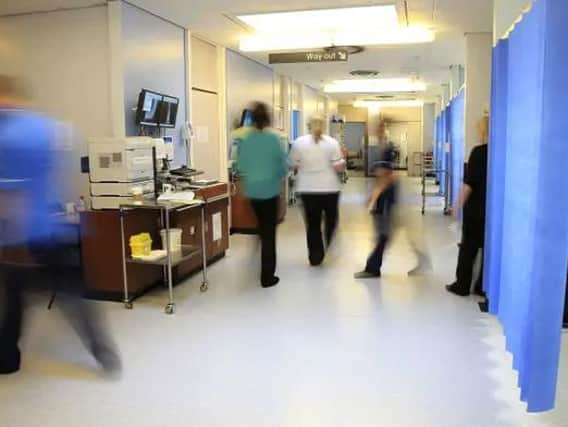Aylesbury hospital admissions for allergies on the rise


Charity Allergy UK says increasing hospital visits across England linked to allergies are worrying, and wants to see more education about the risks of severe allergic reactions.
NHS Digital data shows there were around 85 admission episodes with a primary diagnosis of allergies at Buckinghamshire Healthcare NHS Trust in 2019-20 – the latest full year’s worth of figures.
Advertisement
Hide AdAdvertisement
Hide AdThat was up from around 50 in 2015-16 – the earliest year for which data was available – although it was down from around 115 in 2018-19.
The figures count a patient’s first period of care under a consultant, and include admissions for allergies related to food, pollen and cosmetics, among other things.
Nationally, around 30,400 admission episodes were recorded – a big increase from 20,700 in 2015-16.
“As lockdown restrictions ease, if you or your friends or family have a food allergy, it’s important to never be complacent,” said a spokeswoman for the Food Standards Agency, which is responsible for food safety and hygiene.
Advertisement
Hide AdAdvertisement
Hide Ad“Remember to be allergy aware and speak to restaurants about food allergies every time you order, because ingredients, recipes and staff can change.”
The figures also show there were at least 16 admission episodes with a primary diagnosis of anaphylactic shock at the Buckinghamshire Healthcare Trust in 2019-20 – compared to around 25 in 2015-16.
The exact number for 2019-20 is not known because the totals for certain patient groups were suppressed to maintain confidentiality.
Anaphylactic shock happens when someone has a severe and potentially life-threatening immune reaction to a trigger, which is often an allergy.
Advertisement
Hide AdAdvertisement
Hide AdThere were around 5,500 admission episodes linked to anaphylactic shock across England in 2019-20, which was slightly down from the previous year but up from 4,500 in 2015-16.
Amena Warner head of clinical services for Allergy UK, said the rising number of hospital admissions for allergies and anaphylactic shock was a “huge concern”.
She added: “If this isn’t brought under control we’re going to have a huge problem, because in some cases allergic reactions can be fatal.”
The exact reasons why allergies are on the rise are not known, said Ms Warner, but she added that people’s gut health could be a factor, as well as genetic influences.
Advertisement
Hide AdAdvertisement
Hide AdNew regulations – due to come into force in October – will require businesses preparing pre-packed food for direct sale on their premises to include a full ingredients list on an item’s label.
Named “Natasha’s Law”, this followed the case of Natasha Ednan-Laperouse, who died in 2016 after suffering an allergic reaction to a Pret a Manger baguette.
But Ms Warner said people still need to understand the risks in the first place so they can make an informed choice, adding: “There needs to be much more education about allergies for the general public.”
The FSA spokeswoman said that, although hospital admissions for food-induced anaphylaxis rose in the two decades to 2018, the fatality rate for such admissions more than halved over the period.